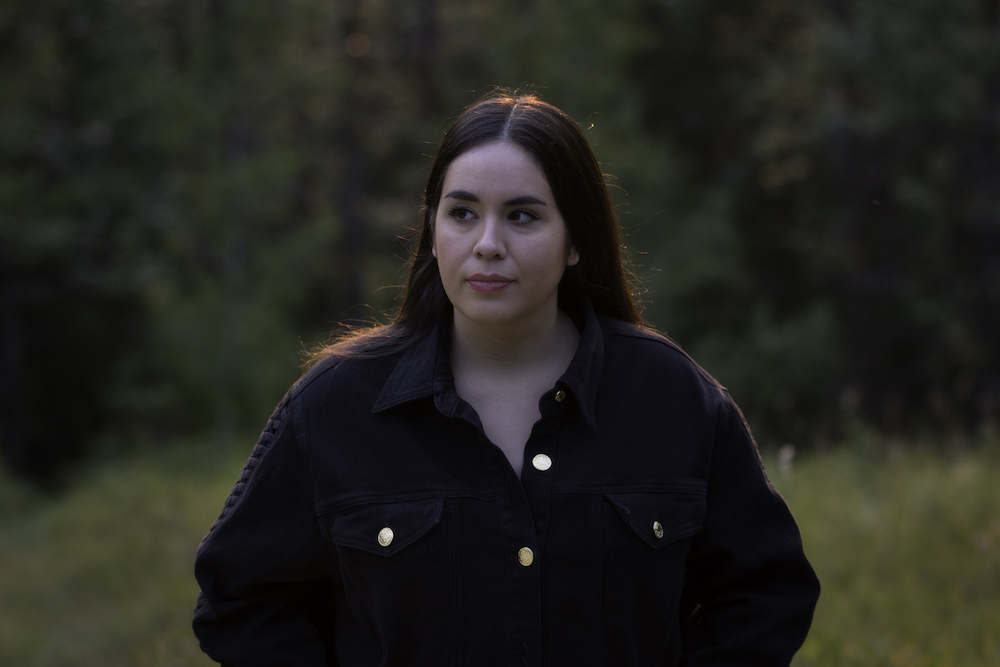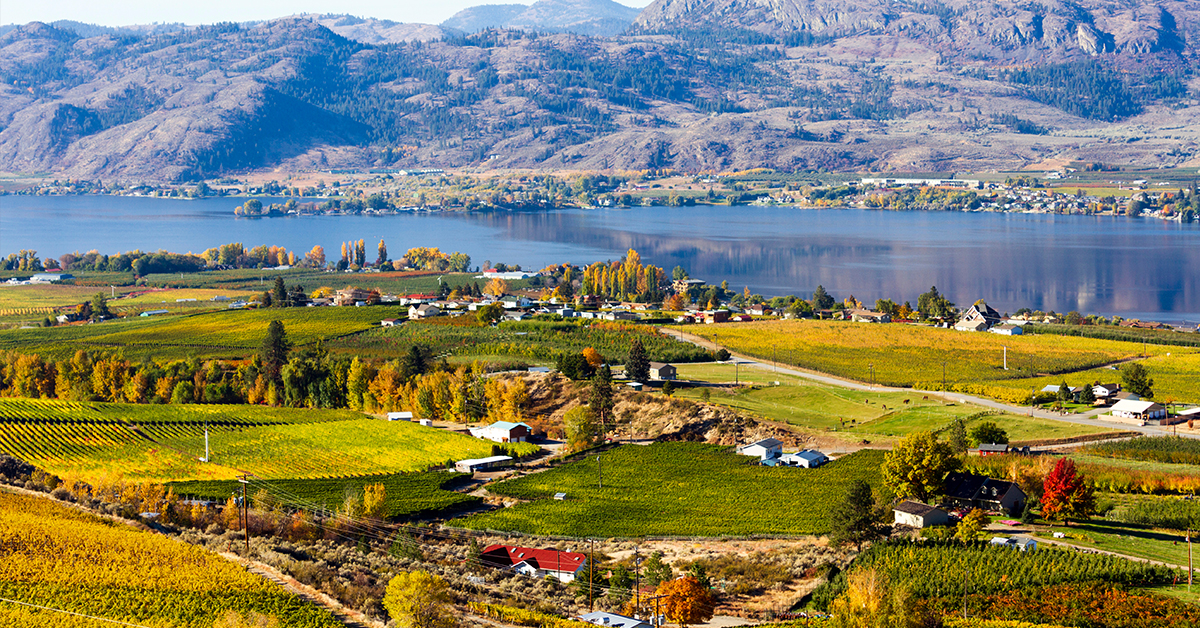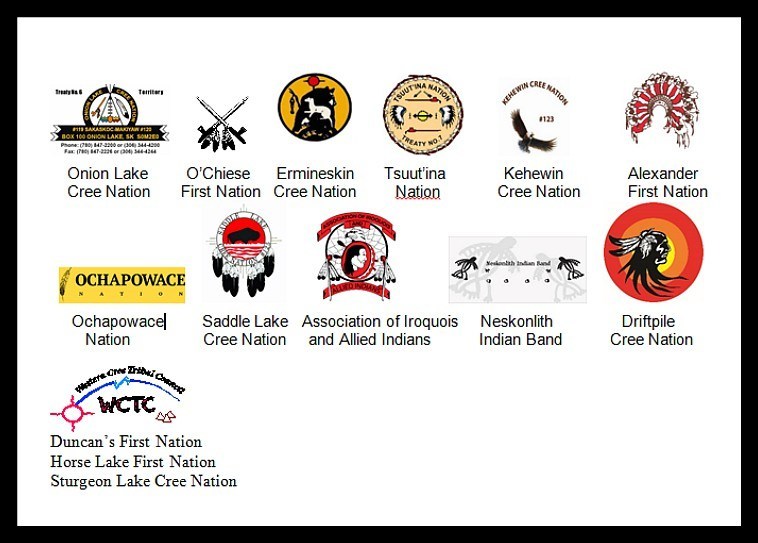Canada’s laws have long been used against Indigenous Peoples
Critics are warning that a bill introduced by the Alberta government to impose large fines and prison time on people participating in blockades or protests that interfere with “critical infrastructure” suppresses democracy and violates treaties.
Austin Mihkwâw, a Samson Cree activist from Treaty 6 territory, says many of the industrial megaprojects that have and would be targets for civil disobedience are already violations of legally binding treaties, which did not entail surrender of the land and only allowed for its use “to the depth of a plow,” for example.
The bill, introduced by Jason Kenney’s United Conservative Party on Tuesday, stipulates that no one shall “enter on” or “interfere” with critical infrastructure “without lawful right, justification, or excuse.”
“What do you define as justification?” asks Mihkwâw. “Protecting the water? Protecting the children? Protecting the future?”
While actions like railway blockades are already illegal under federal law, the Alberta bill allows for arrest without warrant. It also adds additional penalties, such as fines of between $1,000 and $10,000 for a first offence, and up to $25,000 for each subsequent offence. On top of fines, individuals may face six months in jail.
Bill follows weeks of solidarity actions
The new legislation comes after weeks of solidarity actions with the Wet’suwet’en hereditary chiefs opposing the presence of pipeline company Coastal GasLink and the RCMP on their territory in northwestern B.C. People across the country have blockaded rail lines, ports, highways, and government buildings.
Premier Kenney blamed the recent decision of Teck Resources Ltd. to withdraw its application for the $20-billion Frontier oil sands mine on what he called a “general atmosphere of lawlessness” created by acts of civil disobedience — actions he also said are keeping Indigenous communities from moving from poverty to prosperity through resource development.
But Mihkwâw says the premier’s concern for Indigenous communities is not genuine.
“Jason Kenney has no right to act like he cares about the bands or Indigenous people,” he says.
Provincial and federal governments are only interested in Indigenous communities when they find it serves their purposes, and “the only time Indigenous sovereignty is acknowledged is through the colonial states they created,” he says, referring to the elected band council system imposed on First Nations through the Indian Act.
Indigenous sovereignty and title underlie the recent surge in blockades and protests. In the landmark 1997 Delgamuukw v. British Columbia decision, the Supreme Court of Canada affirmed the existing right of the Wet’suwet’en Nation to the “exclusive use and occupation” of their traditional lands, a right the hereditary chiefs are demanding be upheld through the removal of the RCMP and Coastal GasLink from their territories.
“You see these levels of civil disobedience because that’s a necessary way for them to advocate for their rights and themselves as well,” Mihkwâw says, adding that communities often fail to find justice through the Canadian legal system.
“The side of the law has never been on the side of Indigenous people,” he says, and throughout Canadian history are examples of profoundly unjust but legal measures such as the Indian Act and the residential school program.
Constitutional issues
The Alberta bill defines essential infrastructure broadly to include refineries, pipelines, mines, railways, highways, dams, waterways, communications systems, electric utilities, farms, and any land used in connection with said infrastructure. In addition to this extensive list, the bill allows for the provincial government to designate “buildings, structures, devices or other things as being essential infrastructure.”
This conflates public and private property, an important distinction when talking about Charter rights such as the freedom to peaceful assembly. Further, the bill could be used to clamp down on dissent by having the site of a protest declared to be “critical infrastructure.”
Though Kenney’s assertion that “urban green left militants” were responsible for Teck’s withdrawal doesn’t appear to be credible — the company cited regulatory uncertainty and economic concerns as the principal reasons — his rhetoric was no doubt successful in stirring up further animosity towards Alberta’s growing social and climate justice movements.
His government is relying on this divisive and antagonistic narrative that protesters are responsible for lost jobs to justify the need for sweeping penalties.
“Bills like this are deliberately designed to suppress democratic participation in our communities, and I think it’s truly abhorrent that the government is passing laws like this,” says Robert Miller of Extinction Rebellion Edmonton.
The infringement on freedom of expression, freedom of assembly, and Indigenous title are all reasons the proposed law could be found unconstitutional. The constitutional merit of the law, however, likely cannot be challenged until someone is arrested and charged under it — a condition Miller says many people would be happy to bring about.
“I think that there is going to be an appetite in our community, and even myself personally, to try and embarrass the government by getting willfully arrested, just to be able to have the standing to challenge them in court and demonstrate from a legal backing that it is unconstitutional.”






/arc-anglerfish-tgam-prod-tgam.s3.amazonaws.com/public/TNKR6J4ETFER3CDGVNEAL72XPI.jpg)
/arc-goldfish-tgam-thumbnails.s3.amazonaws.com/thumbnails/5e155f564cedfd0009d62f91/n_First-Nation-Dispute20200107T2030.jpg)
 Emily Riddle: Here we are in 2019 and the discourse in this election around the ‘nation-to-nation’ relationship has been very different. Photo by Conor McNally.
Emily Riddle: Here we are in 2019 and the discourse in this election around the ‘nation-to-nation’ relationship has been very different. Photo by Conor McNally.


